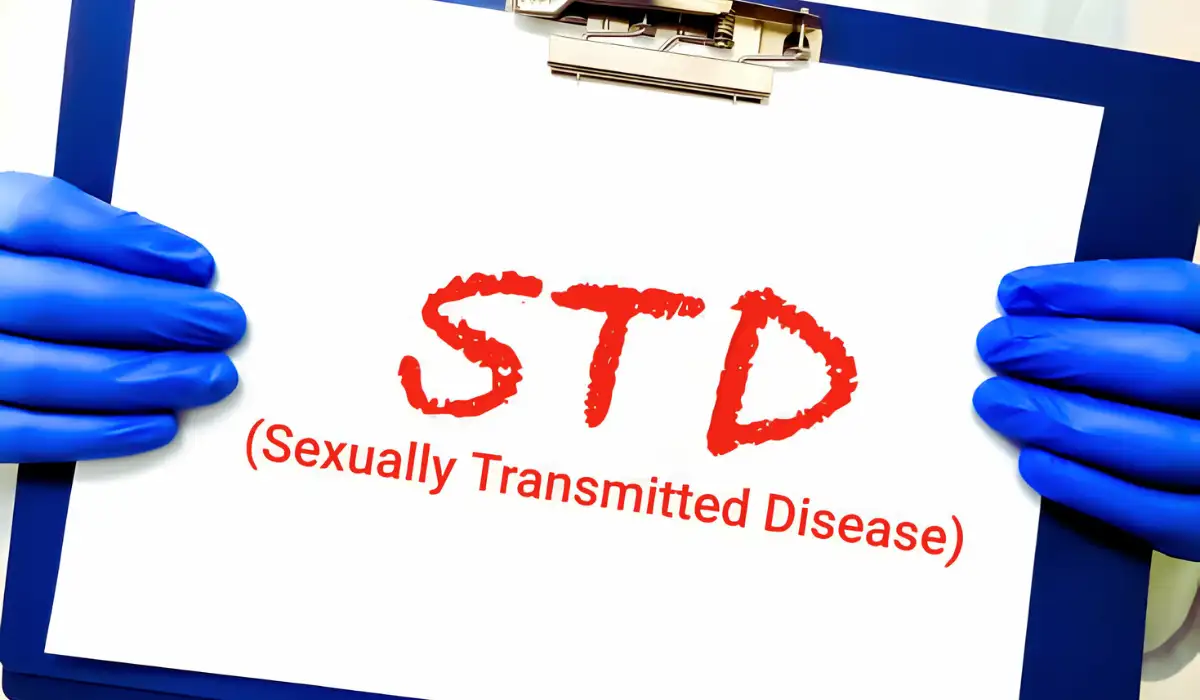Syphilis is a Sexually Transmitted Infection that is spread through sexual contact. It is caused by the bacteria Treponema pallidum.
It can be transmitted through sexual contact or from an infected mother to her unborn child during pregnancy, resulting in congenital syphilis. Congenital syphilis is a serious condition that can lead to severe health complications for the affected child.
In this article, we will explore the topic “Is congenital syphilis contagious to others?” and provide information on the stages, symptoms, treatment, and risks associated with syphilis and congenital syphilis.
What is syphilis?

Before finding an answer to the question, “Is congenital syphilis contagious to others?”, let’s go through some basic information about syphilis. What is syphilis?
Syphilis is a bacterial infection primarily spread through sexual contact with an infected person. The disease progresses through several stages if left untreated, each with its own set of symptoms. The stages of syphilis include primary, secondary, latent, and tertiary syphilis.
How can someone get syphilis?
So, is “Is congenital syphilis contagious to others?” How can someone get syphilis? Syphilis is mainly transmitted through direct contact with a syphilitic sore during vaginal, anal, or oral sex.
Pregnant women with syphilis can pass the infection to their unborn child, resulting in congenital syphilis. Congenital syphilis transmission occurs when the bacteria cross the placenta and infect the developing fetus.
What are the stages and warning signs of syphilis?
In order to provide quick and efficient treatment one should be aware of its warning signs. So, what are the stages and warning signs of syphilis?
- Primary syphilis: A painless sore (chancre) appears at the site of infection.
- Secondary syphilis: Skin rashes, fever, swollen lymph nodes, and other symptoms develop.
- Latent syphilis: No visible signs or symptoms, but the infection persists in the body.
- Tertiary syphilis: Severe complications affecting the heart, brain, and other organs.
What is a possible result of congenital syphilis?
Congenital syphilis can cause miscarriage, stillbirth, or life-threatening health issues for the newborn. Infants with congenital syphilis may experience low birth weight, skin rashes, fever, hepatosplenomegaly (enlarged liver and spleen), anemia, jaundice, and deformities of the teeth, bones, and nose.
Congenital syphilis symptoms
Symptoms of congenital syphilis in infants may include skin rashes, fever, swollen lymph nodes, hepatosplenomegaly, jaundice, anemia, and deformities of the teeth, bones, and nose. Some infants may not show symptoms at birth but develop them later in life if left untreated.
What happens if a baby is born with congenital syphilis?
Babies born with congenital syphilis can experience a wide range of severe health complications. These may include brain and nerve damage, leading to developmental delays, intellectual disabilities, and seizures.
Congenital syphilis can also cause blindness, deafness, and bone deformities, such as saddle noses and saber shins.
The risks associated with untreated congenital syphilis are extremely high, and in some cases, the infection can be fatal. Prompt diagnosis and treatment are essential to minimize the impact of congenital syphilis on the baby’s health and development. Regular prenatal screenings for syphilis are crucial in preventing the transmission of the infection from mother to child.
Congenital syphilis treatment
Prompt treatment of congenital syphilis is crucial to prevent severe health complications. Infants with congenital syphilis are typically treated with intravenous penicillin for 10 to 14 days. The dosage and duration of treatment depend on the severity of the infection and the infant’s age.
In some cases, additional antibiotics may be necessary if the infant is allergic to penicillin or if the infection has spread to the central nervous system. Follow-up examinations, including blood tests and cerebrospinal fluid analysis, are essential to monitor the infant’s response to treatment and ensure that the infection is completely cleared.
Careful monitoring and long-term follow-up care are crucial for infants with congenital syphilis to identify and manage any potential complications that may arise later in life.
Congenital syphilis in adults
Adults who have congenital syphilis as infants may experience late-stage complications if the infection is not adequately treated. These complications can include bone and joint problems, neurological issues, and cardiovascular disorders.
Is congenital syphilis contagious to others?
So, “Is congenital syphilis contagious to others?” Congenital syphilis itself is not directly contagious to others, as it is transmitted from mother to child during pregnancy. However, an adult who had congenital syphilis as an infant is risky.
If they did not receive adequate treatment they can still harbor the infection and potentially transmit it to their sexual partners through sexual contact.
This is because untreated syphilis, including congenital syphilis, can persist in the body and lead to the development of active syphilitic lesions later in life. These lesions, which may be present on the genitals or in the mouth, can serve as a source of infection during sexual intercourse.
Therefore, while congenital syphilis is not immediately contagious to others, it is crucial for individuals with a history of congenital syphilis to undergo proper testing and treatment to prevent the spread of the infection to their sexual partners.
Also Read: STDs: A Guide To Common Sexually Transmitted Diseases
Conclusion
Hopefully, this article has helped you find a satisfactory answer to the question, “Is congenital syphilis contagious to others?”. Finally, congenital syphilis is not directly spread to other people, but it is a severe disease that can cause a lot of health problems for the child who has it.
Pregnant women with syphilis can transmit the infection to their unborn child, highlighting the importance of early detection and treatment. Routine prenatal screening for syphilis is crucial in preventing congenital syphilis and its associated risks. If you are pregnant or planning to become pregnant, discuss syphilis testing with your healthcare provider to ensure the health and well-being of both you and your child.
Remember, prompt treatment is essential in managing syphilis and preventing the development of congenital syphilis. Is congenital syphilis a risk you are willing to take?

